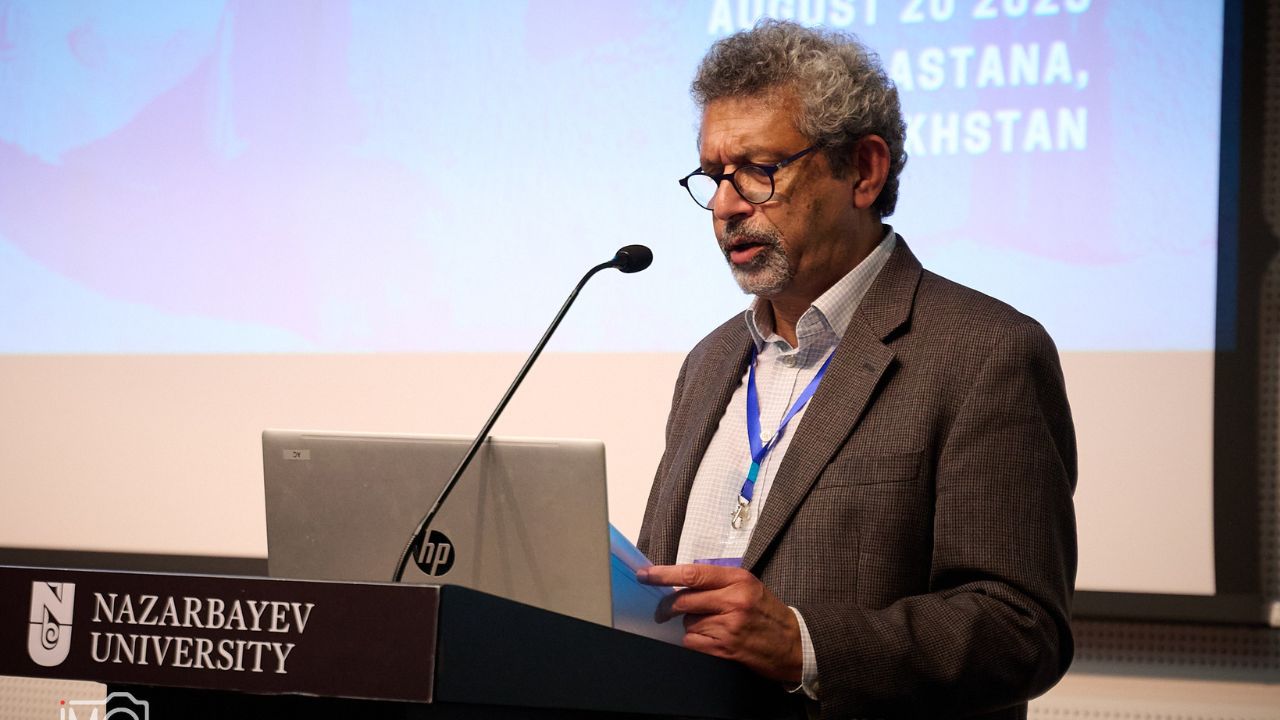ASTANA – The National Academy of Sciences hosted the presentation of the Kazakh-language edition of “Central Asia: A New History from the Imperial Conquests to the Present” by American scholar Adeeb Khalid on Aug. 23 in Almaty.

American historian Adeeb Khalid. Photo NU.jpg
The Kazakh edition features the 18th-century conquests of the region by Russia and China, and follows the story through the Soviet century and into the independence era, according to the CAPS Unlock think tank.
Khalid said he wanted to write a regional history rather than a set of disconnected national stories. He has been working in the region for 30 years and when he retired he got an invitation from Princeton University to publish a book about Central Asia for a wider audience. He spent several years working on the manuscript with four years devoted to writing it.
Khalid has been working as a professor of Asian Studies and History at Carleton College (Northfield, the U.S.) since 1993. His works are focused on modern Central Asia study with connections to cultural change, empire and colonialism and nationhood. He teaches courses on Russia and the Middle East.
“I would say that I’m especially honored that this book has created this much interest in Central Asia,” Khalid explained during the presentation. “I had written it primarily for an English-speaking audience, for people outside of Central Asia. The hope was to introduce the region to them in an accessible but still sophisticated way. Because, whether we like it or not, for the outside world, Central Asia still remains as either the territory or borderland of the Russian Empire, or of China, or there are stereotypes attached to it. If we say Central Asia, in the West people will say ‘Oh, the Silk Road or the Great Game.’ There are at least three or four clichés that are always attached to Central Asia. There’s also a sense that Central Asia is sometimes an exotic land of wonders and mysteries.”
The author noted that Central Asia’s history is complex. The region has experienced all the things that the modern world has seen from imperialism, colonialism, anti-colonialism, to urbanization and economic development, social engineering and environmental disasters.
“Earlier periods – the prehistoric era, archaeology, the Mongol Empire, the Timurid Empire – are already comparatively well studied and covered. But the modern period, which is in many ways even more complex, lacked accessible syntheses. Addressing this gap became one of my goals,” he said.
The book presentation was also organized at the Nazarbayev University hosted as part of the science conference with representatives from Harvard University, the University of Oxford, the University of Cambridge, Tokyo University of Foreign Studies, Leiden University and other institutions.
